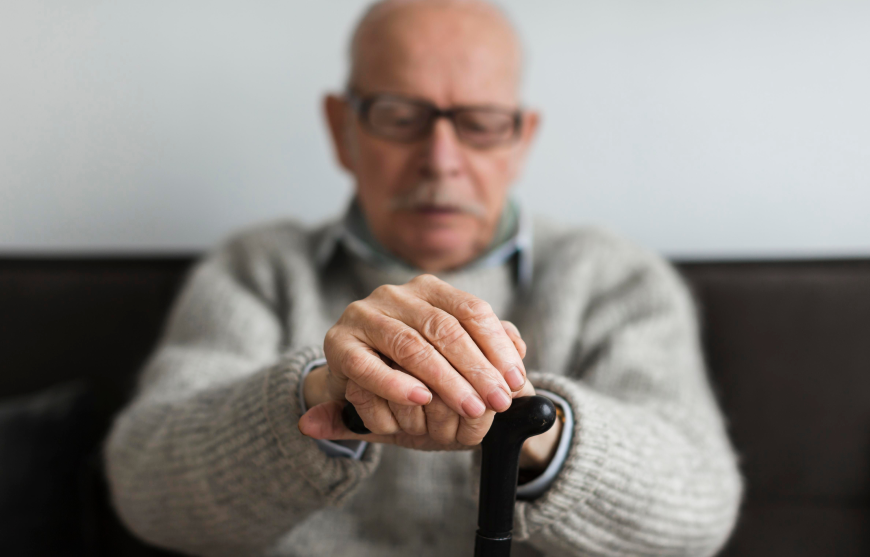
Understanding Parkinson’s Disease UK: Causes, Symptoms, Treatment, and Support
Understanding Parkinson’s Disease UK
Parkinson’s Disease is a progressive neurological condition that affects movement and coordination. It occurs when nerve cells in the brain responsible for producing dopamine—an essential chemical messenger for smooth, controlled movement—begin to deteriorate. This dopamine loss leads to the hallmark symptoms of Parkinson’s such as tremors, rigidity, and slowness of movement. In the UK, Parkinson’s is one of the most common neurodegenerative diseases, affecting nearly 1 in 500 people. With around 145,000 people currently living with Parkinson’s in the country, it remains a significant health concern that impacts not only individuals but also families and caregivers. Many people misunderstand the condition, thinking it affects only the elderly or that it’s purely about tremors. In reality, Parkinson’s Disease is complex, influencing mood, sleep, memory, and even speech. The growing awareness across the UK is helping dispel myths and promote better understanding, early diagnosis, and improved care for those affected.
Recognizing the Early Signs and Symptoms
The early signs of Parkinson’s Disease often start subtly and progress gradually, making it easy to overlook at first. The most recognized symptom is a tremor—usually in one hand when at rest—but there are many more indicators that can appear before noticeable shaking begins. Motor symptoms include muscle stiffness, slow movement (bradykinesia), and difficulties with balance and coordination. These physical changes can make everyday activities such as walking, writing, or even buttoning a shirt more challenging. However, non-motor symptoms are equally important and can appear earlier than movement problems. People may experience fatigue, sleep disturbances, anxiety, loss of smell, and cognitive changes such as forgetfulness or confusion.
Common early warning signs include:
- Trembling in the hands, arms, legs, or jaw
- Muscle stiffness or difficulty moving
- Small handwriting or handwriting that becomes smaller over time
- Stooped posture or balance issues
- Reduced facial expression or softer voice
- Mood changes, depression, or sleep disturbances
Recognizing these signs early and consulting a neurologist can lead to earlier diagnosis and management. Early detection gives patients and families a better chance to adapt and plan for the future while exploring available treatments and support options in the UK.
Causes and Risk Factors of Parkinson’s Disease
The exact cause of Parkinson’s Disease remains unknown, but research points to a mix of genetic, environmental, and age-related factors. In some cases, a family history of Parkinson’s increases the likelihood of developing the condition, though most cases are not directly inherited. Scientists have identified certain genetic mutations that may raise the risk, but these are relatively rare. Environmental exposures such as pesticides, heavy metals, or toxins are also suspected contributors, particularly among individuals living in rural or industrial areas. Age remains the strongest risk factor—most people are diagnosed over the age of 60—though early-onset cases can occur in younger adults.
Men are slightly more likely to develop Parkinson’s than women, and lifestyle factors such as prolonged stress or poor diet may also influence disease progression. While there’s no definitive way to prevent Parkinson’s, ongoing UK-based studies continue exploring links between diet, exercise, and long-term brain health. The hope is to uncover strategies that could delay or even reduce the risk of developing Parkinson’s in the future. Understanding these risk factors allows individuals to make informed lifestyle decisions and participate in early screening programs.
Diagnosing Parkinson’s Disease in the UK
Diagnosing Parkinson’s Disease requires a thorough medical evaluation by a neurologist, as there’s no single test that confirms the condition. Doctors typically begin with a detailed review of a patient’s symptoms, medical history, and physical and neurological examinations. The process may include specialized imaging tests such as MRI or DAT scans to rule out other neurological conditions that mimic Parkinson’s. Because symptoms develop slowly, early diagnosis can be difficult—especially when tremors or movement changes are mild.
In the UK, the National Health Service (NHS) provides clear guidelines for diagnosing and managing Parkinson’s. Patients are usually referred to a specialist Parkinson’s nurse or neurologist for accurate assessment. Doctors also look for how patients respond to dopamine-related medication, as a positive response can help confirm the diagnosis. Misdiagnosis is not uncommon, which is why seeing an experienced specialist is crucial. Awareness programs led by organizations such as Parkinson’s UK encourage people to seek medical advice promptly when symptoms appear.
Treatment and Management Options
There is currently no cure for Parkinson’s Disease, but effective treatments are available to help manage symptoms and maintain a good quality of life. Medication remains the cornerstone of treatment, with Levodopa being the most commonly prescribed drug. It helps replenish dopamine levels, easing stiffness and movement problems. Other medications such as dopamine agonists and MAO-B inhibitors can also be used to boost or mimic dopamine activity.
For individuals whose symptoms are not well controlled with medication, deep brain stimulation (DBS) can be an option. This surgical treatment involves implanting electrodes in specific areas of the brain to regulate abnormal signals, improving motor control. Beyond medication and surgery, therapy plays a major role in managing Parkinson’s:
- Physical therapy helps improve strength, balance, and flexibility.
- Occupational therapy assists patients in adapting their daily activities and home environments.
- Speech therapy addresses difficulties with speaking or swallowing.
Lifestyle changes, such as regular exercise, a balanced diet rich in antioxidants, and stress reduction, are equally important. The UK healthcare system provides multidisciplinary care, ensuring patients have access to doctors, nurses, therapists, and mental health professionals for comprehensive support.
Living Well with Parkinson’s Disease
Living with Parkinson’s Disease in the UK involves a proactive approach to both physical and emotional health. While the disease presents daily challenges, many people continue to live active, fulfilling lives by adapting routines and seeking the right support. Exercise has been proven to slow the progression of symptoms and boost mood—activities like walking, cycling, yoga, and tai chi are particularly beneficial. Maintaining social connections and mental stimulation through hobbies or volunteering also enhances overall well-being.
Support for emotional health is equally vital. Many patients experience anxiety or depression, but counseling and support groups can provide coping tools and a sense of community. Parkinson’s UK and local health trusts run programs that connect patients and families for shared experiences and encouragement. Families play an essential role by offering patience, understanding, and assistance in adapting daily activities. Home modifications—such as installing handrails or removing tripping hazards—can make living spaces safer and more comfortable. With the right mindset and resources, living with Parkinson’s becomes less about limitation and more about resilience.
Research and Innovation in Parkinson’s Disease UK
The UK is at the forefront of Parkinson’s research, driving global progress in understanding and treating the disease. British scientists are exploring the genetic and environmental mechanisms behind Parkinson’s, aiming to identify early biomarkers and potential prevention strategies. Research institutions, along with the Parkinson’s UK charity, are funding studies into new medications and neuroprotective therapies designed to slow or halt disease progression.
Exciting innovations include stem cell therapy and gene therapy, which show promise in restoring damaged brain cells and dopamine production. Advanced wearable devices and AI-powered tracking systems are also being developed to monitor symptoms more accurately, improving treatment personalization. Clinical trials across UK hospitals give patients opportunities to participate in groundbreaking research, contributing directly to the future of Parkinson’s care. Continued investment and public awareness remain crucial to sustaining this progress and offering hope to those living with the condition.
Support Resources and Organizations in the UK
The UK offers a robust network of resources for people living with Parkinson’s and their families. Parkinson’s UK, the leading charity, provides information, helplines, and community events to connect patients and caregivers. The NHS also delivers specialist Parkinson’s services, including care plans, medication reviews, and mental health support. Patients can access physiotherapy, occupational therapy, and counseling through local healthcare providers.
Community-based support is widely available through Parkinson’s support groups, offering a safe space to share experiences and advice. Financial assistance programs and disability benefits are also accessible for those unable to work due to the condition. Local councils, charities, and volunteer organizations provide home visits, transport assistance, and emotional support. Participating in national events like Parkinson’s Awareness Month helps strengthen the community and promote understanding across the UK.
Frequently Asked Questions (FAQ)
1. What is the average age of onset for Parkinson’s Disease in the UK?
Most people are diagnosed after the age of 60, though about 1 in 20 experience early-onset Parkinson’s before age 50.
2. Is Parkinson’s Disease hereditary?
Most cases are not inherited, though genetic mutations can slightly increase risk.
3. What are the best exercises for Parkinson’s patients?
Exercises that improve flexibility, strength, and balance—like yoga, walking, dancing, and swimming—are especially helpful.
4. Can Parkinson’s Disease be cured or reversed?
There is currently no cure, but treatments can significantly improve quality of life and symptom control.
5. How can family members help someone living with Parkinson’s?
Family members can provide emotional support, assist with daily tasks, encourage therapy, and join support groups together.
6. What support does Parkinson’s UK provide?
Parkinson’s UK offers helplines, online resources, research funding, local support groups, and guidance for both patients and caregivers.
Takeaway
Parkinson’s Disease UK affects thousands of lives, but with awareness, compassion, and innovation, individuals can face it with strength and hope. By understanding its causes, recognizing symptoms early, and embracing available treatments and community support, patients and families can maintain independence and a high quality of life. The future of Parkinson’s care continues to evolve, offering optimism that ongoing research and united efforts will lead to better outcomes for everyone touched by this condition.


